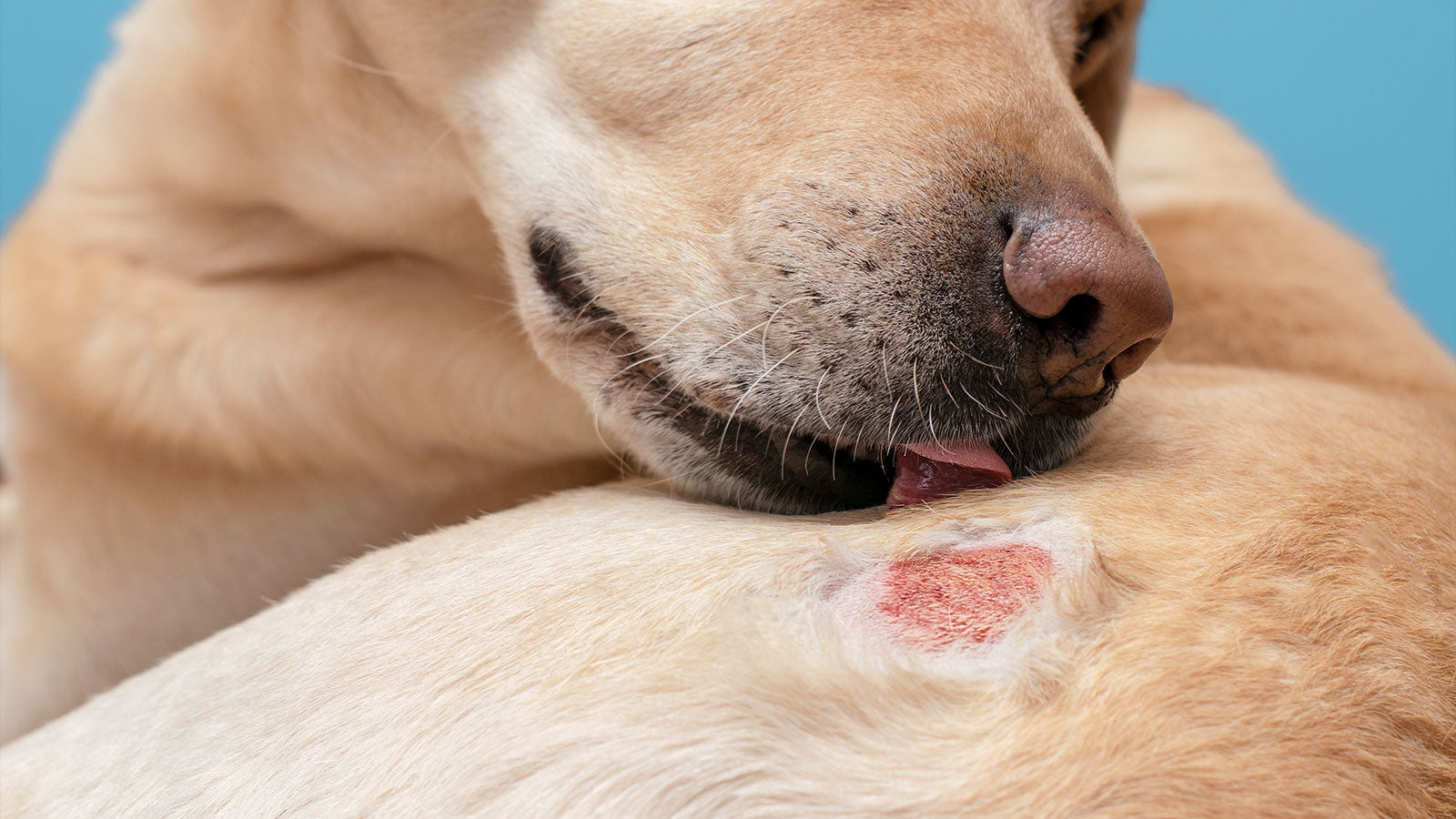Dog skin conditions are common, and they often reflect deeper health issues within your pet. Addressing these skin problems involves more than just treating the symptoms; it requires a holistic approach to improve overall health.
This guide will walk you through natural and effective steps to manage and reverse your dog's skin conditions, ensuring your furry friend enjoys optimal health from the inside out.
Symptoms of Dog Skin Conditions
Recognizing the early signs of skin conditions in your dog is crucial for timely intervention. Some common symptoms include:
- Dull coat without a healthy shine
- Flaky skin with dandruff
- Musty odor
- Hair loss
- Dry, itchy skin
If left untreated, these can escalate to more severe conditions such as redness, discolored skin, thickened skin, yeast or bacterial infections, and even tumors.
Common Dog Skin Conditions
Skin issues in dogs can manifest in various forms, often indicating underlying health problems. These conditions include:
- Bacterial, yeast, or fungal infections
- Allergic reactions (environmental, atopic, or allergic dermatitis)
- Flea bites or flea allergy
- Food allergies and intolerances
These conditions often indicate deeper issues with your dog’s immune system or toxin buildup, requiring internal treatment to see improvements externally.
Natural Steps to Manage Dog Skin Conditions
1. Switch to a Raw Diet
A raw, whole food diet is the foundation for resolving skin issues. Commercial dog foods can contain allergens and preservatives that exacerbate skin problems. Focus on a diet rich in raw meat and vegetables like broccoli, cauliflower, and leafy greens. Avoid starchy carbohydrates such as rice, grains, and potatoes, as they can aggravate skin conditions.
2. Use Herbal Detoxification
Detoxifying your dog's system is crucial. Create a detox mix using dried organic herbs like calendula, chamomile, parsley, burdock, nettle, and dandelion. Steep these herbs in boiling water overnight and add the strained liquid to your dog’s food.
3. Detoxify the Liver
Milk thistle is excellent for liver detoxification. If using a human-grade product, adjust the dosage according to your dog’s weight. It’s important to use milk thistle for short periods (2 to 4 weeks), with breaks in between.
4. Detoxify the Kidneys
Every few months, prepare a kidney detox tea using herbs like hawthorn, gingko, marshmallow, and dandelion. This helps maintain your dog’s kidney health.
5. Support the Lymphatic System
Exercise, massage, and bodywork are great for lymphatic detoxification. Additionally, herbal teas made from plantain, red clover, cleavers, and fenugreek can further support the lymphatic system.
6. Implement Homeopathy
Homeopathy addresses deep-rooted issues causing skin conditions. Working with a homeopathic vet can provide tailored remedies to restore balance in your dog’s health.
7. Repair the Gut
A healthy gut is essential for a strong immune system. Introduce high-quality probiotics into your dog’s diet to balance gut bacteria and improve overall health. A high-fiber diet also supports prebiotics, which nurture probiotics in the gut.
8. Boost the Immune System
Medicinal mushrooms, especially organic whole mushrooms, are excellent for enhancing the immune system. Additionally, natural forms of Vitamin C from sources like camu camu or acerola can further support immune health.
9. Minimize Environmental Toxins
While detoxifying your dog, ensure you aren’t reintroducing toxins from the environment. Remove chemicals and artificial fragrances from your home to prevent further skin irritation.
10. Reduce Stress
Stress is a significant trigger for skin conditions in dogs. Reducing stress in both your dog and your household can greatly improve skin health. Engage in regular relaxation activities, exercise, and consider training or bodywork to alleviate your dog’s anxiety or trauma.
Conclusion
Managing your dog’s skin conditions naturally involves a comprehensive approach that addresses diet, detoxification, immune support, and stress reduction. By following these steps, you can help your dog achieve healthier skin and overall well-being. Regular monitoring and proactive care will ensure that skin issues are resolved and prevented in the future.






Share:
Arthritis in Pets: Causes, Symptoms, and Natural Relief
Natural Ways to Manage and Reduce Lipomas in Dogs